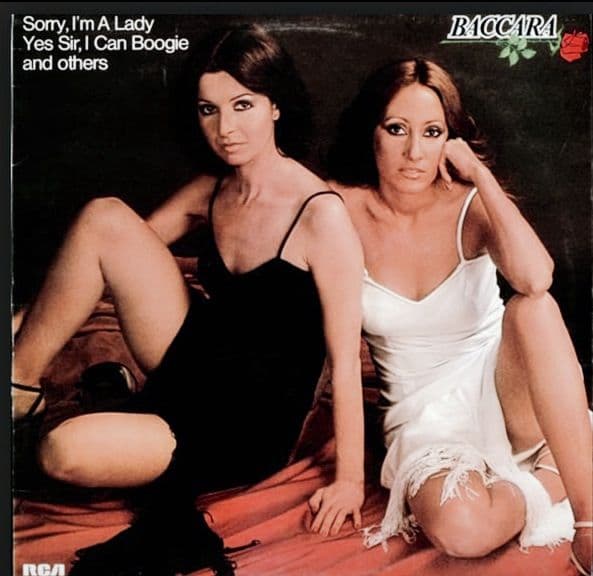
“Yes Sir, I Can Boogie” – a celebration of confidence, sensuality, and the disco spirit
When Baccara released Yes Sir, I Can Boogie in 1977, it quickly became more than a catchy disco tune — it was a statement of joie de vivre, of feminine empowerment, and of the dance floor as a place of both flirtation and freedom.
Chart Success & Legacy
Yes Sir, I Can Boogie was launched as the first single from Baccara’s self-titled debut album. Written by Frank Dostal and Rolf Soja, the song captured the European imagination and soared up the charts. It reached number one in the UK – their only UK chart-topper – and ruled in a number of other countries including Germany, the Netherlands, Sweden, Belgium, and Switzerland.
Sales-wise, it was a monster: the song sold over 16 million copies worldwide, making it one of the best-selling singles ever by a female duo.
The Story Behind the Song
The tale behind Yes Sir, I Can Boogie is as evocative as the song itself. Baccara was formed by Mayte Mateos and María Mendiola, two flamenco dancers from the Canary Islands who were discovered by RCA Records while performing for tourists. Under the creative direction of producer Rolf Soja and songwriter Frank Dostal, they shifted their image from traditional Spanish dancers to glamorous disco divas.
The song was recorded in Germany and released in spring 1977. Its production showcases the classic Euro‑disco style: driving bass, lush strings, and an irresistibly danceable rhythm.
Meaning & Emotional Resonance
At its heart, Yes Sir, I Can Boogie is playful and flirtatious, but there’s something deeper, too. The lyrics open with hesitation and longing:
“Mister, your eyes are full of hesitation / Sure makes me wonder / If you know what you’re looking for.”
From that moment, the singer plants her flag: she can dance — not just physically, but emotionally, with confidence. In the chorus she sings:
“Oh, yes sir, I can boogie / But I need a certain song … I can boogie, boogie‑woogie all night long.”
That repeated refrain is more than just a promise to dance; it’s a declaration of control and self-possession. The woman in the song knows what she wants — she isn’t passively waiting. She sets the terms (“I need a certain song”), and she’s not afraid to take the lead.
In the context of the late 1970s disco era, this was especially powerful. Disco was not only about hedonism and dance; it was about liberation — and this song embodies that spirit. The beat invites bodies to move, but the words remind us that movement can also be a language of desire, insistence, and joy.